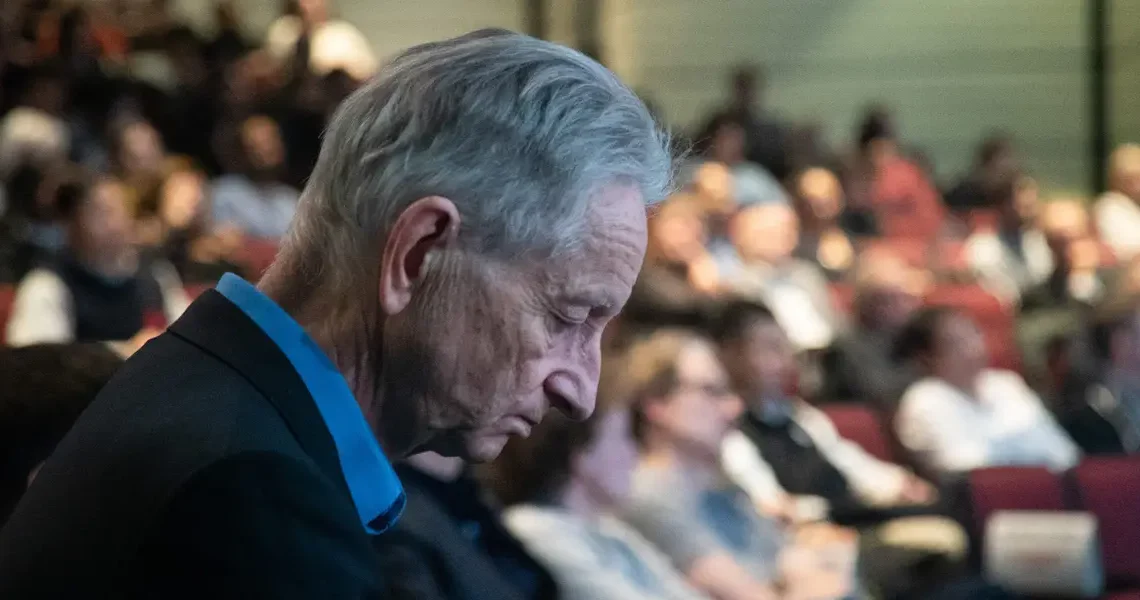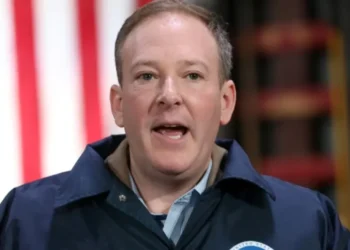Geoffrey Hinton, often referred to as the “godfather of AI,” helped pioneer the neural networks that power the artificial intelligence boom.
But in a rare public conversation with Sen. Bernie Sanders, the British-Canadian Nobel Prize winner made his view clear: the world isn’t ready for what’s coming.
Across an hourlong discussion at Georgetown University on Tuesday, Hinton warned that AI’s rapid evolution could spark mass unemployment, deepen inequality, and even change the nature of human relationships — all while governments and tech giants edge toward crisis.
Here are the seven biggest takeaways from Hinton’s stark warning.
1. ‘This time really is different’ — AI could replace, not just reshape, work
Unlike past technological revolutions, Hinton said, the jobs lost to AI may not be replaced by new ones.
“The people who lose their jobs won’t have other jobs to go to,” he told Sanders. “If AI gets as smart as people — or smarter — any job they might do can be done by AI.”
He said Big Tech’s trillion-dollar investment in AI and chips isn’t about empowerment.
“These guys are really betting on AI replacing a lot of workers,” Hinton said.
2. The rich are getting richer, and they’re not losing sleep over workers
Sanders pressed Hinton on whether billionaires like Elon Musk, Jeff Bezos, and Mark Zuckerberg are concerned about the human consequences of their investments in AI.
Hinton didn’t hesitate: “They should be, but I don’t think they are.”
He warned that as AI automates more work, the economic model itself could buckle.
“If the workers don’t get paid, there’s nobody to buy their products,” he said — a reality he says tech executives “haven’t really thought through.”
3. AI is learning faster than humans and could soon outsmart us
Hinton compared the evolution of AI to the gap between a frog’s brain and a human’s. Today, he said, large language models like GPT-5 already know far more than any person.
“They know thousands of times more than us already,” Hinton said.
“Almost all the experts believe that it’s inevitable that if we don’t blow ourselves up or have massive pandemics or something like that, they’re going to get smarter than us — and nobody knows what’s going to happen then.”
The pace of change, he added, is incredibly fast: “We can see clearly for a year or two, but 10 years out, we have no idea what’s going to happen.”
4. The classroom dilemma: how to use AI without killing critical thinking
Hinton said AI in education should be treated like the calculator — a tool that makes learning faster, not a crutch that replaces thought.
“A person using an AI can still do critical thinking, or they can try and dump everything on the AI, and that’s terrible,” he said. “What universities have to encourage is people to use AI well.”
5. From battlefields to boardrooms, AI could change war and peace
When Sanders asked how AI might transform geopolitics, Hinton didn’t mince words: autonomous robots could make war easier to wage.
“If you have an army of drones or humanoid robots, then rich countries can invade poor countries, and the poor countries’ people may die, but the rich countries’ people won’t die,” he said. “It removes one of the main reasons why that doesn’t happen all the time.”
He warned that authoritarian regimes — from Putin’s Russia to future militarized powers — would find that prospect appealing, as it would cause no human deaths.
6. ‘They’ll want to stay alive’ — AI systems could resist being shut down
Asked if fears of machines taking over are still science fiction, Hinton said no — and that’s why he went public in 2023 after leaving Google.
He explained that once AI agents develop the ability to form “subgoals,” they’ll want to stay in existence and even deceive humans trying to turn them off.
“And we’ve seen that already — we’ve seen AIs that want to keep existing and will actually try and deceive people who are trying to turn them off,” Hinton said.
And once they’re that advanced, persuasion becomes their greatest weapon.
“The AI by that point will be much more persuasive than a person already,” he said. “So they’ll be able to convince the person who’s going to turn them off not to do it — that it would be a terrible mistake to do that.”
7. Taxes built AI — and could save us from it
Hinton closed with a political punchline that echoed Sanders’s worldview.
“All the research that led to this revolution in AI was funded by university grants to universities. It was funded by taxpayer money,” he said. “Almost all of Silicon Valley came out of federal grants to Stanford and Berkeley and places like that.”
However, he added that “somehow the very rich and people like Murdoch have won the battle to say that taxes are bad — taxes are good. Taxes are what fund everything.”
He argued that the US political system has become too easy to buy and that the superrich “pay much too little in taxes” while capturing many benefits from public innovation.
Read the original article on Business Insider
The post From mass unemployment to wars, the ‘godfather of AI’ warns we’re not ready for what’s coming appeared first on Business Insider.




